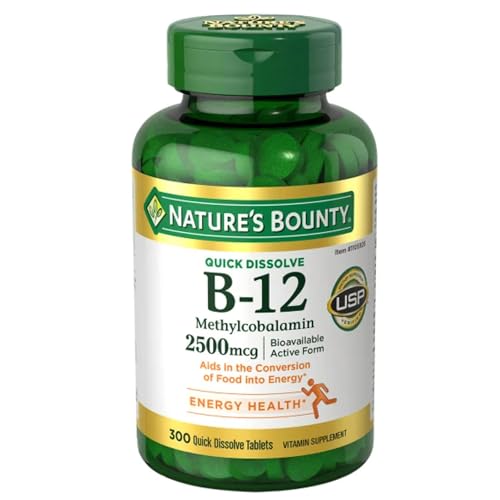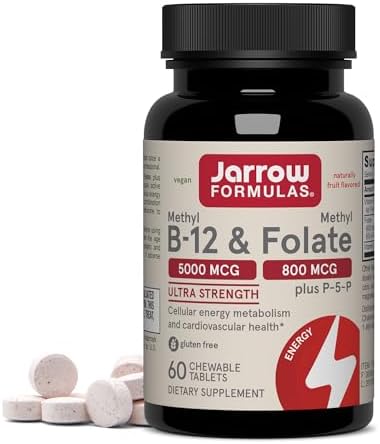Have you or someone you love been feeling forgetful lately?
Perhaps you’ve noticed confusion, irritability, or even trouble concentrating. Maybe it started slowly—like forgetting names or missing appointments. Then, the fog deepened.
Now, you worry. Could it be dementia?
Before panic takes over, let’s talk about something surprisingly simple: vitamin B12. A lack of this one nutrient can look exactly like dementia. Even more shocking? In many cases, it’s completely reversible.
Let’s dive into this overlooked problem—and what you can do about it today.

Meet Eliezar: A Real Story of Reversible Memory Loss
Eliezar, 67, thought his life was slipping away.
He forgot conversations, repeated stories, and even got lost driving to the grocery store. His family feared Alzheimer’s. Doctors started testing.
But one simple blood test changed everything.
Eliezar’s vitamin B12 levels were dangerously low. With daily B12 supplements, his memory returned. The fog lifted.
No dementia. Just a treatable deficiency.
So, What Exactly Is Vitamin B12?
Vitamin B12, also called cobalamin, is essential. Your brain needs it to function.
It helps:
- Make red blood cells
- Protect your nerves
- Produce energy
- Create brain chemicals that control mood and memory
Without B12, the brain starts to malfunction. Slowly. Then, suddenly.
Why Is B12 Deficiency So Dangerous?
Because it mimics dementia almost perfectly.
Low B12 can cause:
- Memory loss
- Disorientation
- Confusion
- Depression
- Mood swings
- Difficulty focusing
These symptoms look just like Alzheimer’s or other cognitive decline. That’s what makes B12 deficiency so tricky—and terrifying.
Yet, unlike dementia, B12-related memory loss is often reversible. That’s why catching it early is critical.
Who Is at Risk of Vitamin B12 Deficiency?
Shockingly, millions of people are at risk and don’t know it.
Here’s who should be especially careful:
- Adults over 60 (reduced stomach acid = less B12 absorption)
- Vegans and vegetarians (B12 comes mostly from animal products)
- People with digestive issues (Crohn’s, celiac, IBS)
- Those taking antacids, metformin, or other long-term medications
- Anyone with pernicious anemia
Still unsure? If you’re tired, foggy, or forgetting things—ask for a simple blood test. It could change your life.
Why You Need Vitamin D3 + K2 MK-7: Benefits and How to Take It
The Silent Epidemic: Why Doctors Sometimes Miss It
Because B12 symptoms develop slowly, they often go unnoticed. Or worse, they’re mistaken for aging.
Doctors may not always test B12 levels unless you ask. So, speak up. If your memory or mood feels off, demand a test. It could save your brain.
How to Fix a Vitamin B12 Deficiency
Now for the good news. B12 is easy to get—once you know you need it.
There are two main ways to boost your B12:
1. Oral Supplements
Try high-quality methylcobalamin B12 tablets or sublingual drops. These dissolve under your tongue for better absorption.
✅ Nature’s Bounty B12 1000 mcg Tablets (Amazon)
- Cellular Energy Metabolism and Cardiovascular support supplement: Contains one 60 count bottle of Jarrow Formulas Ultra …
- Easy-to-take, cherry-flavored chewable tablets to support your cardiovascular health and cellular energy production.
- Dietary supplement with a high amount of Methyl B-12, Methyl Folate and Pyridoxal-5-Phosphate (P-5-P), the active forms …
Both options are easy to take daily.
2. B12 Injections
If your body struggles to absorb B12 through food or pills, your doctor may prescribe injections. These go straight into your bloodstream and work fast.
How Long Until You Feel Better?
Many people feel improvements within days or weeks.
Memory gets sharper. Mood lifts. Energy returns.
But don’t stop there. Keep monitoring your levels. Long-term B12 health requires consistency.
What Foods Are Rich in B12?
If you eat meat, dairy, or eggs, you probably get some B12. Still, due to age or digestion issues, your body might not absorb it well.
Try adding:
- Beef liver (the king of B12)
- Salmon and tuna
- Eggs and cheese
- Fortified cereals
Or, if you’re vegan, go straight to supplements. That’s your safest route.
✅ Garden of Life Vegan B12 Spray (Amazon)
Can You Take Too Much B12?
Generally, B12 is safe—even in high doses. It’s water-soluble, so your body flushes out the excess. However, always follow your doctor’s guidance.
If you’re pregnant, nursing, or have specific health conditions, talk to a professional first.
Let’s Recap: The Warning Signs You Should Never Ignore
If you notice:
- Constant forgetfulness
- Mood swings
- Tiredness
- Trouble thinking clearly
Don’t just assume it’s aging.
Get your B12 tested. You could be just one vitamin away from feeling like yourself again.

Final Thoughts: You’re Not Powerless
You don’t have to live in fear of memory loss.
Sometimes, the answer is simple. Sometimes, it’s one overlooked nutrient.
By understanding the link between vitamin B12 deficiency and dementia, you can take control. You can get tested. You can take action.
And most importantly—you can feel better.
Ready to Act? Here’s Your First Step
✅ Grab a B12 supplement today. Even better, grab one you trust:
👉 Nature’s Bounty B12 1000 mcg (Amazon)
👉 Jarrow Formulas Methyl B12 (Amazon)
Then, talk to your doctor. Ask for a blood test. Tell your loved ones.
Because a clear mind is worth everything.


